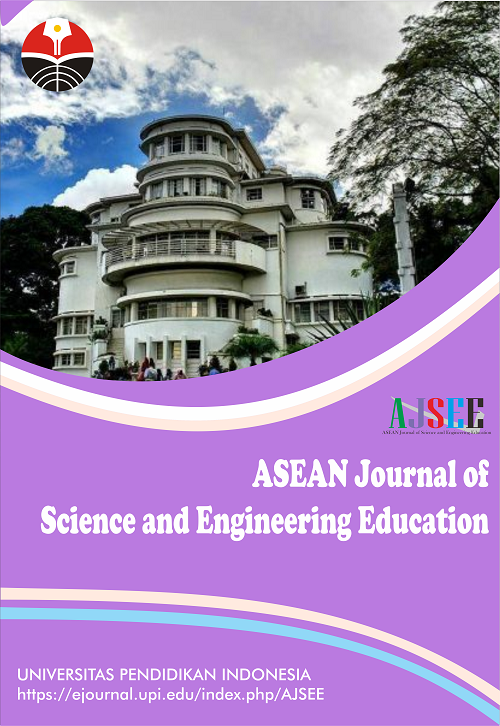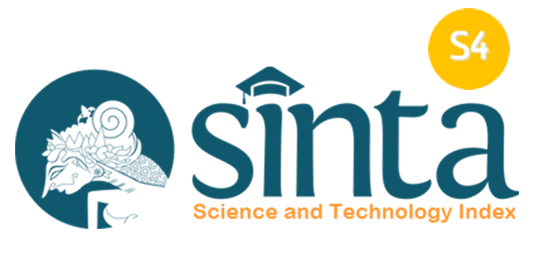Numerical Minimum Competence Assessment for Increasing Students’ Interest in Mathematics
Abstract
Keywords
Full Text:
PDFReferences
Aningsih, A. (2018). Kemampuan berpikir tingkat tinggi. Journal Reseapedia, 1(1), 5–24.
Cahyana, A. (2020). Prospek akm dan survei karakter: Memperkuat basis praliterasi dan pranumerasi usia dini. In Banpaudpnf Kemendikbud, 1(1),1–4.
Ennis, R. H. (2013). The nature of critical thinking: an outline of critical thinking dispositions and abilities. Inquiry: Critical Thinking across the Disciplines, 26(1), 4-18.
Fatimah, C., Asmara, P. M., Mauliya, I., and Puspaningtyas, N. D. (2021). Peningkatan minat belajar siswa melalui pendekatan matematika realistik pada pembelajaran berbasis daring. Mathema: Jurnal Pendidikan Matematika, 3(2), 117-126.
Fuadi, H., Robbia, A. Z., Jamaluddin, Jufri, A. W. (2020). Analisis faktor penyebab rendahnya kemampuan literasi sains peserta didik. Jurnal Ilmiah Profesi Pendidikan, 5(2), 108-116.
Hermiyanty, W. A., and Bertin, D. S. (2017). Materi pendukung literasi numerasi. Journal of Chemical Information and Modeling, 8(9), 1–58.
Herzamzam, D. A. (2018). Peningkatkan minat belajar matematika melalui pendekatan matematika realistik (PMR) pada siswa sekolah dasar. Visipena, 9(1), 67-80.
Nehru, N. H. (2019). Asesmen kompetenesi sebagai bentuk perubahan ujian nasional pendidikan indonesia: analisis dampak dan problem solving menurut kebijakan merdeka belajar. Journal of Chemical Information and Modeling, 53(9), 89–99.
Samosir, B. S., Nursahara, N., and Pohan, A. F. (2020). Upaya meningkatkan minat belajar matematika menggunakan model pembelajaran (pakem) di SMA Negeri 2 Siabu. Jurnal Karya Pendidikan Matematika, 7(1), 14-21.
Silviani, T. R., Jailani, J., Lusyana, E., and Rukmana, A. (2017). Upaya meningkatkan minat belajar matematika menggunakan inquiry based learning setting group investigation. Kreano, Jurnal Matematika Kreatif-Inovatif, 8(2), 150-161.
Sulistiani, I. R. (2016). Pembelajaran matematika materi perkalian dengan menggunakan media benda konkret (manik–manik dan sedotan) untuk meningkatkan hasil belajar siswa kelas 2 SD Dinoyo 1 Malang. Vicratina: Jurnal Pendidikan Islam, 1(2), 1-5.
Utami, W. Y. D. (2013). Meningkatkan minat belajar matematika melalui permainan teka-teki. Jurnal Ilmiah Visi, 8(1), 1-9.
Wulandari, E., and Azka, R. (2018). Menyambut pisa 2018: pengembangan literasi matematika untuk mendukung kecakapan abad 21. De Fermat: Jurnal Pendidikan Matematika, 1(1), 31-38.
Yanti, N. F., and Sumianto, S. (2021). Analisis faktor-faktor yang menghambat minat belajar dimasa pandemi covid-19 pada siswa SDN 008 Salo. Jurnal Pendidikan Tambusai, 5(1), 608-614.
DOI: https://doi.org/10.17509/ajsee.v2i3.38660
Refbacks
- There are currently no refbacks.
Copyright (c) 2021 Universitas Pendidikan Indonesia

This work is licensed under a Creative Commons Attribution-ShareAlike 4.0 International License.














